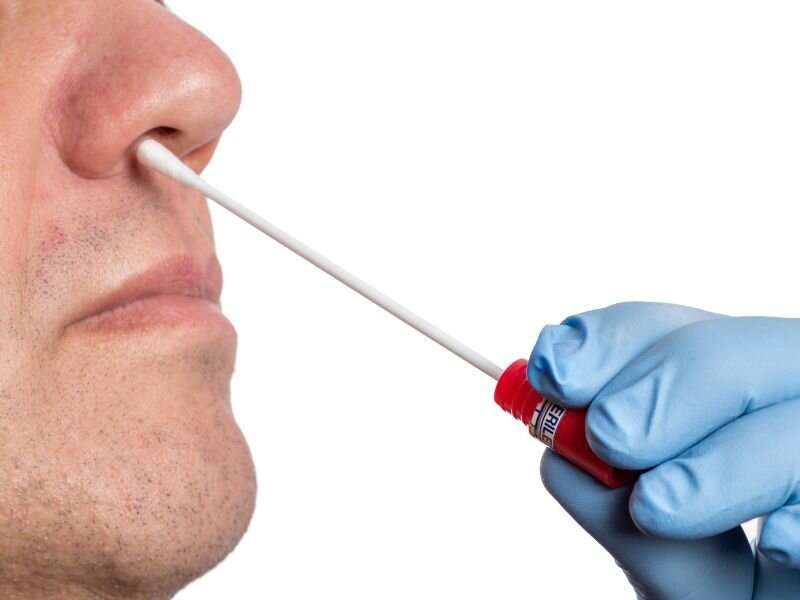The Abbott BinaxNOW COVID-19 Ag Card (BinaxNOW) rapid antigen test has lower sensitivity than reverse transcription-polymerase chain reaction (RT-PCR) for detecting severe acute respiratory syndrome coronavirus 2 infection, according to research published in the Jan. 19 early-release issue of the U.S. Centers for Disease Control and Prevention Morbidity and Mortality Weekly Report.
Jessica L. Prince-Guerra, Ph.D., from the CDC COVID-19 Response Team, and colleagues examined the performance of the BinaxNOW rapid antigen test. BinaxNOW was used with real-time RT-PCR testing for the analysis of 3,419 paired specimens collected from persons aged 10 years and older during Nov. 3 to 17, 2020, in Pima County, Arizona. Viral culture was performed on 274 of 303 residual real-time RT-PCR specimens positive by either test.
The researchers found that the BinaxNOW antigen test had a sensitivity of 64.2 and 35.8 percent for specimens from symptomatic and asymptomatic persons, respectively, with near 100 percent specificity in specimens from both groups. Virus was cultured from 35 percent of the specimens, including 57.8 percent of 147 specimens with concordant antigen and real-time RT-PCR positive results and 8.9 percent of 124 and none of three with false-negative and false-positive antigen test results, respectively.
"Despite their reduced sensitivity to detect infection compared with real-time RT-PCR, antigen tests might be particularly useful when real-time RT-PCR tests are not readily available or have prolonged turnaround times," the authors write.
More information: Abstract/Full Text
Journal information: Morbidity and Mortality Weekly Report
Copyright © 2020 HealthDay. All rights reserved.
























